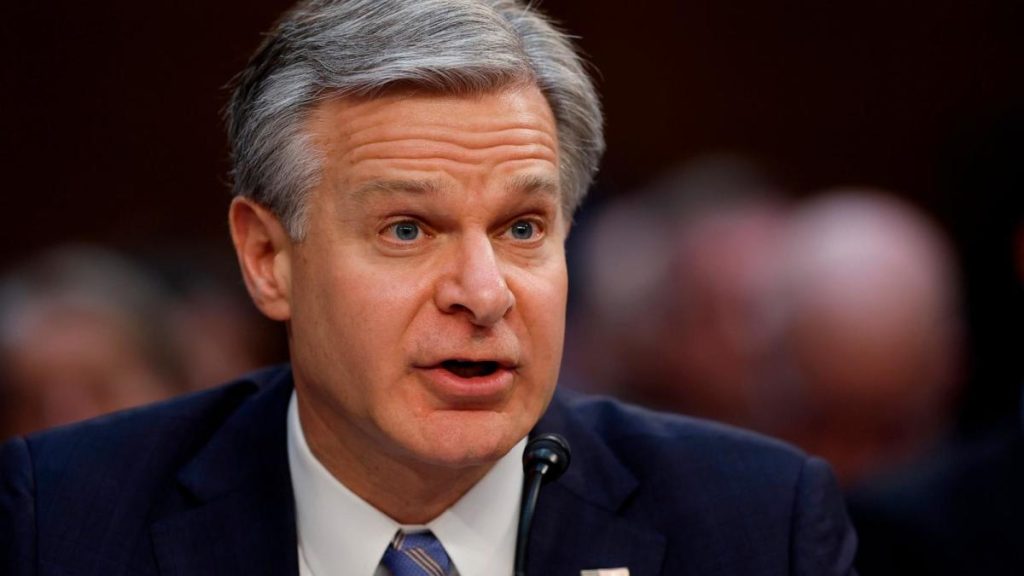FBI Director Christopher Wray recently warned at an American Bar Association luncheon in Washington, D.C., about the increasing threat of foreign adversaries and terrorist groups targeting the United States. He specifically mentioned ISIS-K as a potential coordinated attack threat, with calls for attacks against Jewish communities within the country. The agency is working to prevent such attacks and is concerned about the potential radicalization and mobilization following recent conflicts. Wray also mentioned the threat from bad actors in Russia, China, North Korea, and Iran, with Russia targeting critical infrastructure like underwater cables and industrial control systems.
Wray highlighted Russia’s heavy investment in cyber operations as an asymmetric weapon against the United States. The Russian government has been targeting critical infrastructure globally, including the U.S. energy sector, since its invasion of Ukraine. China, on the other hand, is playing a long game in undermining the security and economy of the rule-of-law world. The Chinese cyber program is larger than any other government’s program, outnumbering the U.S. by 50 to one. The country’s cyber threats and tactics are particularly concerning and “mafia-like” in nature.
During his speech, Wray defended Section 702 of the Foreign Intelligence Surveillance Act, which allows the government to collect communications from non-Americans overseas without a warrant. The section is up for reauthorization in the House, and Wray stressed the consequences of reducing the agency’s capabilities. He also criticized a proposed $500 million cut to the FBI budget by House Republicans, pointing out that cutting the budget would only benefit violent criminals, child predators, foreign adversaries, and terrorists, while hurting law enforcement partners and ultimately the American people.
Wray highlighted the urgency of the threat posed by foreign terrorists and adversaries targeting the United States, calling for vigilance and preparedness to prevent potential attacks. The FBI is actively working to counter these threats and protect the country’s critical infrastructure from cyber operations. He warned about the radicalization and mobilization potential following recent conflicts and urged a robust defense of Section 702 of the Foreign Intelligence Surveillance Act to maintain the agency’s surveillance capabilities. The proposed budget cuts to the FBI were criticized for potentially hindering its ability to combat terrorism and protect the American people.
In conclusion, Wray’s speech emphasized the evolving threat landscape facing the United States, with foreign adversaries and terrorist groups increasingly targeting the country through cyber operations and security threats. The FBI is actively working to prevent potential coordinated attacks and protect critical infrastructure from attacks by Russia, China, North Korea, and Iran. The agency is also defending its surveillance capabilities under Section 702 of the Foreign Intelligence Surveillance Act and pushing back against proposed budget cuts that could compromise its ability to combat terrorism and protect American citizens. Vigilance and preparedness are key in countering these threats and maintaining national security.


